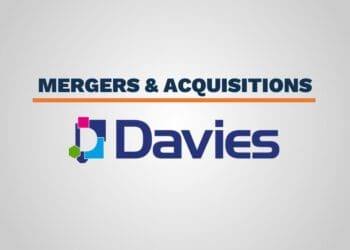This article appeared previously Association of Corporate Counsel’s ACC Docket and is published here with permission from the journal.
In 1994, I left the Army JAG Corps Environmental Law Division and joined the corporate world as senior environmental counsel for a multinational chemical company. About a year or so into my tenure as a civilian, I discovered that the tank farm at one of our plants lacked sufficient secondary containment and was in violation of the Clean Water Act. Upon making this discovery, I spoke with the head of our engineering department to discuss how we could work together with the plant management to put a project plan together to address this issue. My colleague in the engineering department told me that they were well aware of the secondary containment deficiencies at the plant and had, in fact, developed a $5 million corrective action plan.
Delighted to hear that a plan had already been developed, I proposed that we hold hands and go to the senior management team to get the project approved so we could bring the plant into compliance with the law. My friend in engineering smiled wanly and began to chuckle a bit. When I asked what was so funny, he said: “Nothing. But management is never going to approve this project. We’ve laid this one on the table in the past, and they have other plans for that money — like paying bonuses and shareholder dividends.”
Sadly, my colleague was right. For the following 10 years, until the plant was closed, no money was ever allocated for this project. As a consequence, the corporation had cheated and won. It enjoyed the time value of $5 million for the decades the plant was in operation and paid no penalty. In so doing, they enjoyed an advantage over those competitors who chose to make expenditures necessary to comply with the law.
As I look back on this episode in my career, I can still feel the forces at play in the company that seemed to make resistance to the status quo futile — if not career-limiting. Nevertheless, I regret that I lacked the courage or the organizational savvy to do a better job as corporate counsel in persuading my client to comply with the law. Given the ubiquity of cheating in business, evidenced by the weekly news reports of multimillion- and multibillion-dollar fines levied against firms caught in the act, I’m supposing that many other corporate counsel have had a similar experience. So the question is, when we see our client cheating, what is our most principled and effective response? Dan Ariely’s book “The (Honest) Truth About Dishonesty – How We Lie to Everyone – Especially Ourselves” provides some useful insights.
Depressingly, Ariely’s research evidenced that the vast majority of us cheat when we think we can get away with it and that we seem to have little difficulty finding rationalizations to support our misdeeds. Moreover, the prevalence of cheating increases significantly when the cheater is part of our own social group (like a work colleague) and is further heightened if the cheater is an authority figure. Ariely also discovered that cheating behaviors spread like a virus from one person to another and that we tend to cheat more when doing so benefits others. Given the fact that these circumstances are quite common in business, these findings show that we, as corporate counsel, have our work cut out for us. However, this knowledge also indicates how we can be more effective at our jobs. The following are some ideas you might take into consideration in advising your corporate client the next time they begin to head in the wrong direction:
Hang on tightly to your moral compass
If we take Ariely’s findings seriously, we need to face the fact that we are as just as prone as our colleagues to catch the cheating bug and rationalize our own wrongdoing. Nothing we learned in law school inoculates us from this human weakness. Perhaps the best way to guard against falling into this trap is to recognize our own vulnerability, maintain constant vigilance for such pitfalls and never let go of our moral compass, no matter how rugged the terrain.
Be organizationally savvy
In my experience, finger wagging and sanctimonious pontificating are not particularly effective ways to persuade a client to change course. This is especially true in large organizations where many of your clients are your superiors and, more often than not, have fairly sensitive egos. Instead, when you see things heading off the rails, close your office door and think very carefully about your most effective course of action. Specifically, write down the answers to the following critical questions:
- What additional facts do I need to make sure I don’t go into this half-cocked?
- How can I best get these facts?
- What are my client’s motivations, needs and fears? What do they have to gain or lose in the circumstances? What do they have at stake?
- What assumptions, rationalizations or justifications might my client have for taking their position?
- Whom are my likely allies?
- Whom are my likely opponents?
- Whom should I talk to and in what order?
- What will I say to them and what is their likely response?
- How can I best frame the issue to persuade my client to change course?
- What is the most effective way for me to communicate with my client?
Don’t take another step until these questions are answered and you have formulated a good plan of action.
Remain calm and flexible
One of the fastest ways to lose credibility when advising a client is to get emotional. When you show emotion, others can more easily discount what you say. Conversely, there is nothing more persuasive to a client than a cogent, well-informed, rational and calmly delivered argument. Also, don’t posture yourself as the only one with the answer. Not only does this turn people off, it may also blind you to the possibility of alternative strategies that could be as good as or superior to the ones you’re recommending. It is often better to begin an important client meeting with questions rather than answers. One of Ariely’s key findings about cheating is that the most effective prevention to this scourge is “monitoring” to reduce the chances that individuals can cheat with impunity. This difficult and thankless task often falls on us as corporate counsel because our colleagues count on us every day to guide them in the right direction — even if doing so means telling them things they don’t want to hear. All will benefit if we play this role effectively.














